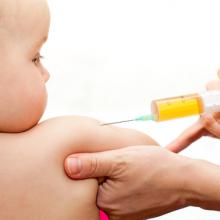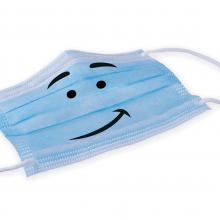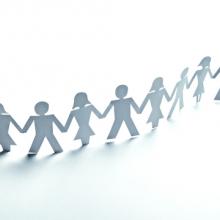vaccines
TWO YEARS AFTER likely origination in a wet market in China, the coronavirus SARS-CoV-2 and its mutations are spreading across the globe with terrible, long-term consequences. We now know what it’s like to have a global-scale crisis, one that disrupts everything.
Infectious disease specialists have been warning governments for a long time about such impending crises, and the World Health Organization (WHO) had encouraged countries to ensure that they met minimum standards for pandemic preparedness long before COVID-19. In 2018, the WHO detected outbreaks of six of its eight “priority diseases” for the first time. The rise of populist nationalism in recent decades has led governments to starve the United Nations and the WHO of the financial resources and authority they need to safeguard global public goods, instead of empowering these institutions to act. So, while pandemics are a result of our global interconnectedness, they are exacerbated by our lack of global cooperation.
Azubuike Muodum, a Nigerian migrant living in Johannesburg, South Africa has not had his worst COVID-19 fears realized.
“When the [pandemic] started, I thought it was a disease that is going to kill everyone, more like an end-time plague,” Muodum told Sojourners in May.
Still, the last two years have had challenges. Muodum runs a small-scale restaurant in the central business district of Johannesburg, South Africa; he says the pandemic and subsequent lockdown created a “huge burden” for him and his restaurant. While countries like the United States begin returning to post-pandemic life, Muodum and others who emigrated to South Africa are facing the challenges of a still-spreading COVID-19.
The new CDC guidance has also prompted many pastors and faith leaders to revisit their own masking and social distancing guidelines for worship. But as an immunocompromised person, I want churches to know that if you choose to allow your congregation to unmask now, before we have any sort of herd immunity, you are asking immunocompromised people to choose between risking their lives or being excluded from church.
This week the United States surpassed a tragic milestone: Half a million people in this country have died from COVID-19 — a number that, while devastating, doesn’t even take into account the full human toll of the virus. While numbers of cases, deaths, and hospitalizations have begun to fall precipitously (for a variety of overlapping reasons) and nearly 50 million Americans have received at least one dose of the vaccine, this dark winter feels like a prolonged wilderness of grief and loss.
HOW ABOUT NOW? Now can we exhale? Confident that our democracy is still clinging above the precipice of failure, its fingers sore from gripping an outcrop holding our country together, its legs dangling over the jagged stones of dictatorship below [almost finished with the metaphor], its feet clawing for a foothold of common ground, even though feet actually don’t claw, but I can’t think of the verb that feet do.
Anyway, Joe Biden won the election and finally countered that hurtful nickname of “Sleepy” by staying awake for most of his inauguration. Chief Justice John Roberts did his part by respectfully stifling a giggle when administering the oath of office to a man facing a Supreme Court that could nullify any action he takes. And none of the television cameras picked up Roberts mouthing “6 to 3, baby!”
It was a nice ceremony, marred only by Rudy Giuliani rushing the stage, waving documents and shouting something about fraud that nobody heard because we were distracted by how much he looks like a crazed jack-o’-lantern. Other than that, the nation finally celebrated a president who will usher in our long-awaited renewal. (But it turns out ushers only have the skills to separate friends of the bride and groom, so we turned off the television and resumed staring at the same four walls we’ve been looking at since March.)

A baby being vaccinated. Photo via Dmitry Naumov / Shutterstock.com / RNS
The governor of California — which was ground zero for the Disneyland measles outbreak that infected 117 people — today signed legislation giving the state one of the toughest school vaccine laws in the country.
California children will no longer be able to skip the shots normally required to attend school because of their parents’ religious or personal objections. Unvaccinated children will still be able to attend school if there is a medical reason why they’re not able to be immunized, such as treatment for cancer.
With measles outbreaks in 14 states and health authorities imploring parents to weigh the minimal risks of vaccines against the ravages of preventable disease, some Christians are raising an objection of a completely different sort: the abortion connection.
Abortion?
The Internet rumors that claim vaccinations mean having tiny pieces of aborted fetuses injected into your body are flat-out wrong, yet there is a grain of truth in the assertion that vaccinations and abortions are linked.
Many of the most common vaccines, for rubella and chicken pox for example, are grown in and then removed from cells descended from the cells of aborted fetuses. Pregnant women aborted them about 40 years ago by choice, and not with the intent of aiding vaccine production.
Yet for some religious believers, those facts do not lift what they see as a moral prohibition against vaccination.
I've been having little arguments with myself all week: on one hand, like many good Americans, I believe in the idea and potential and creativity and wonder of individuals. I believe that the mind, for example, is a fathomless miracle. I believe that individuals have certain rights to freedom and self-determination.
Yet at the same time, everything that we are has been given us. We carry in our bodies the genes of thousands if not millions of ancestors; we have been brought to this moment — every moment — by people whose care and attention and patience have loved us imperfectly along. And, of course, by the God who has loved us into being.
Those of us who have the gift of being able to read and write often also have the ability to learn and to choose — to choose where to live and with whom, to choose what to think and to believe and to consume. And that, compared to how most people have lived and do live, is an almost unimaginable luxury. We can choose.







